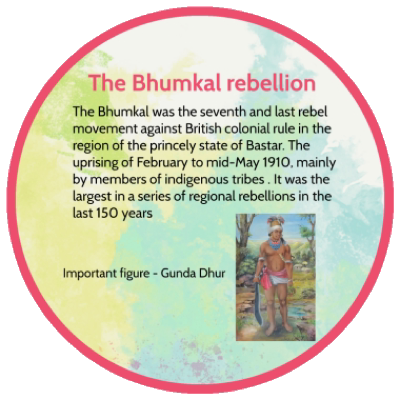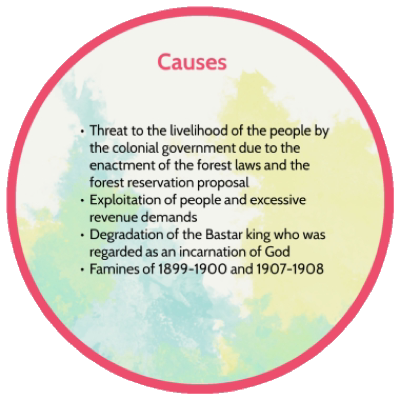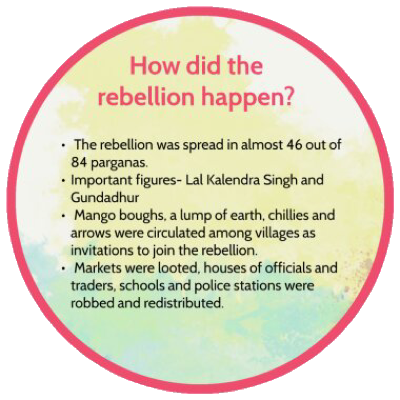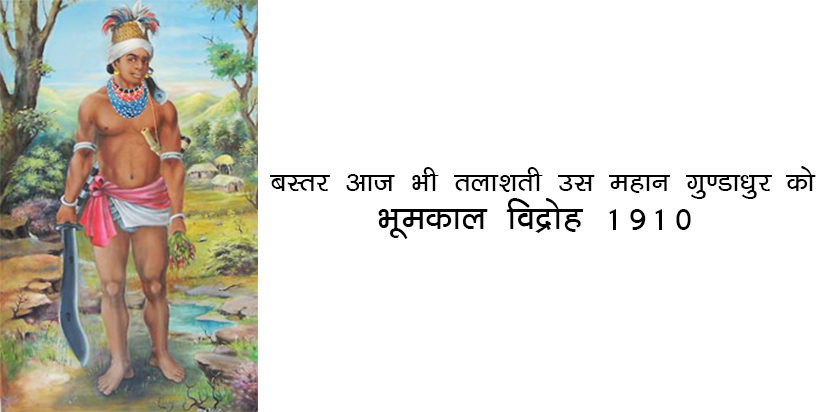We have heard tales and read stories about the members of the freedom struggle, who fought for our independence. We have heard all about Gandhi and Nehru, Patel and Tilak . But there were some more whose names we have forgotten. And then there were some, whose names we might not have even heard of. We are going to tell you about some of those freedom fighters who gave their lives and we do not know about them. India’s freedom struggle is not new to anybody. The tyranny of British is on lips in every nooks and corners of India. If a book to sing the praises of the freedom fighters is to be written, it will speak volumes. Yet, there would be innumerable names missing from the pages but it doesn’t mean that they aren’t present. If we have a closer look, we would find many names lying in the margins of those golden pages.
Names that were forgotten,
Sacrifices that weren’t mentioned,
And martyrdom whose songs were unsung.

The 150 years history of protests and rebellion in Bastar culminated in the Bhumkal rebellion of 1910 meaning the great people’s upsurge. Several other policies of the state at that time proved extremely oppressive for the tribals of the region and became focal points of the Bhumkal rebellion. The rebellion was widespread including half the parganas of Bastar, it symbolized the struggle of tribals against an alien rule attempting to remould the tribal pattern of life.
Bhumkal rebellion tribal leader Gunda Dhur was a tribal leader of Nethanar, a village in Bastar district. He is considered to play a major role in 1910 rebellion of the Dhurwas of kanger forest in Bastar. The British colonial government proposed to keep two-third of the Kanger forest as a reserved forest in 1910. This new proposal was opposed by a number of tribals in the area as they could be affected due to the proposal. Gunda Dhur played a major role in organizing tribes and influencing them to revolt against the British rule. Each family contributed to the rebellion .The rebels led by Gunda Dhur robbed, looted and burnt British granaries and redistributed grains to the poor. By 13th February most of the British granaries were looted and were distributed amongst the poor villagers. The British and the King both were amazed by the able leadership of a tribal man and the bravery of his troops. As a result, the British appointed Captain Gear for the help of king and his ministers. King Panda Baijnath along with Captain Gear made plans to keep a check on Gunda Dhur and his troops.

15 major members of the troops were arrested on 22nd February in a protest but the British soldiers were not able to even see the face of Gunda Dhur, arresting him was out of question. This incident placed Gunda Dhur as a worthy opponent against Captain Gear. Gear pledged of the soul of Bastar that he will bring an end to all rebellion which later turned out to be just an illusion to catch Gunda Dhar and his troops. After this the revolt increased. For months Gunda Dhar carried out many minor and major rebellions and all of them were led by him. Captain Gear also made many attempts to catch Gunda Dhar but in vain. Gunda Dhur also attacked Captain Gear but he somehow got away. Gunda Dhur was now a force to reckon with. It was for the first time that troops of so called “adiwasi” people had threatened both the Kingdom and the British.
Gunda Dhur and all his supporters had gathered together to celebrate their victories on 24th March 1910. Sonu Manjhi, one of the very trusted of Gunda Dhur was bribed by the British with money and greed for power. The troops were exhausted with all the wars and were drunk and sleepy. Then Sonu Manjhi conveyed all the information to Captain Gear. A large number of British soldiers gathered at the spot of the celebration on the morning of 25th March 1910 and started firing on the troops of Gunda Dhur, the sounds of the bullets alerted Gunda Dhar and he kept trying to wake the troops but they were not in a state to stand and fight. Gunda Dhur, having no other way, took his sword and ran into the jungles. He knew that if the British army gets a hold onto him, then that will be the end of the Bhumkal revolt. Gear order shoot at sight on the troops and many of the major leaders of the troops were arrested. 21 sons of the soil were martyred and Debridhur and 7 of his people were arrested which included Madia Manjhi who was later hanged on the streets in front of all the people.

After all these events, Kalendra Singh and his friends, along with the tribal people, made an agreement with the British, in which illegal intrusion and torturing of the troops came to an end which later led to peace in the lands of Bastar which was also the dream of Gunda Dhar.

Gunda Dhur was neither caught nor died in the events that took place in 1910, the British files were eventually closed saying that no one was able to tell who Gunda Dhur is and nor were they able to find his whereabouts. “The forests of Bastar still looks around for its son Gunda Dhur”.
The modern day Chhattisgarh also has an award in bravery and excellence in sports in the honour of Gunda Dhur.
It’s sad that the bravery of these fighters are only stated in the archives of the government records and are really hard to find out, yet they have a very lasting impression on our history and paved the way of our struggle of Independence.
Reference/s :
https://kosalkatha.com/chhattisgarh-bastar-bhumkal-vidroh-and-gundadhur/




4 replies on “Gunda Dhur & The Bhumkal Revolt”
The real hero
Such an inspiring hero.
Thankyou for such contents ?
Didn’t know about him before reading this blog. Keep it coming.